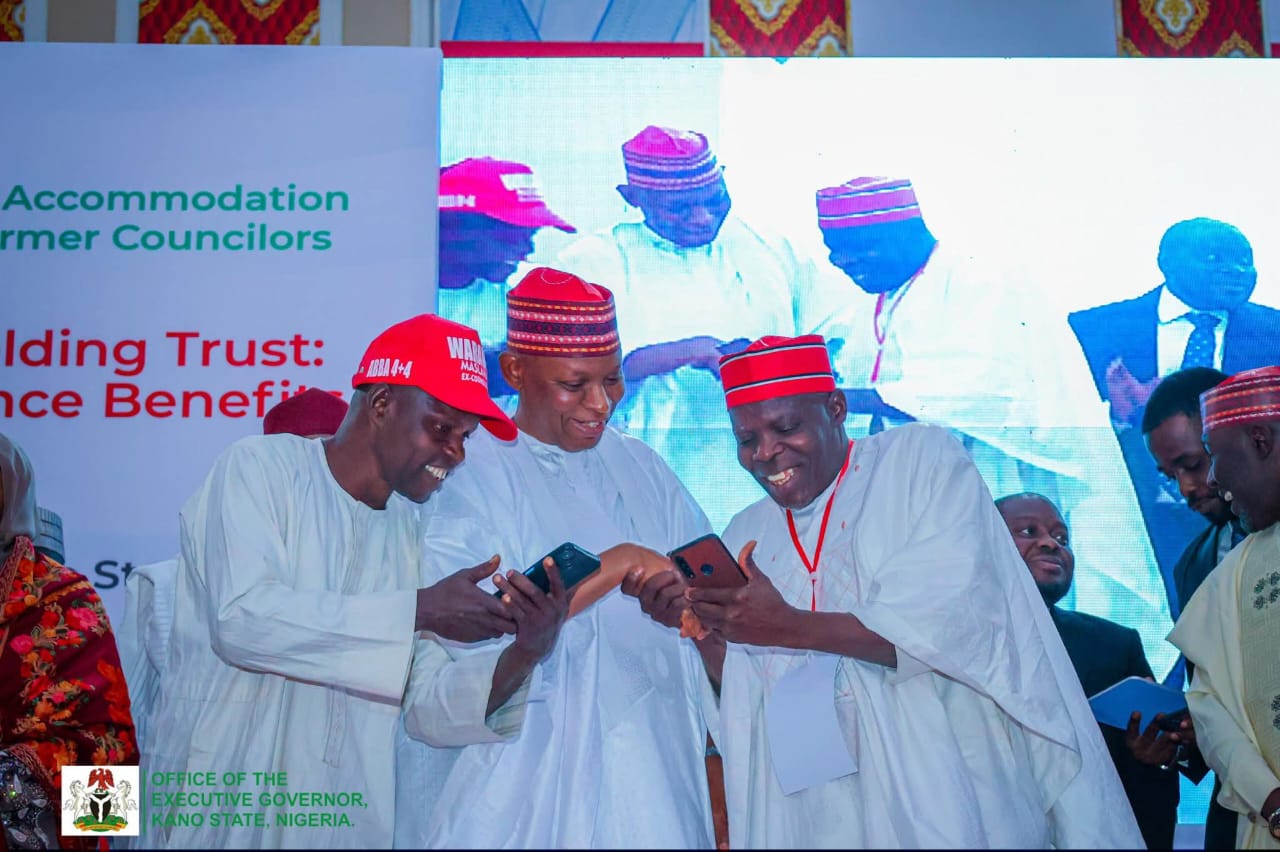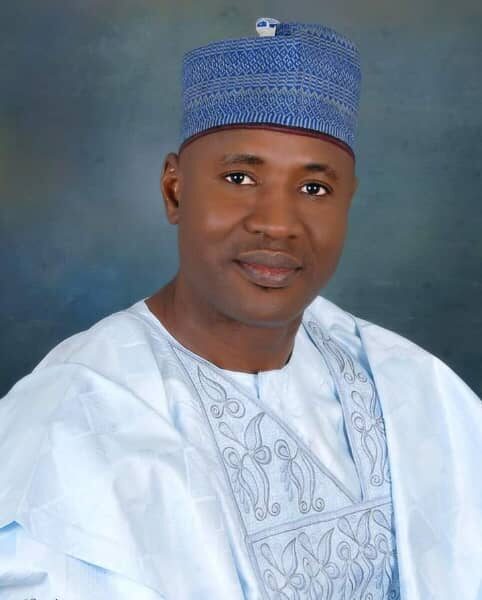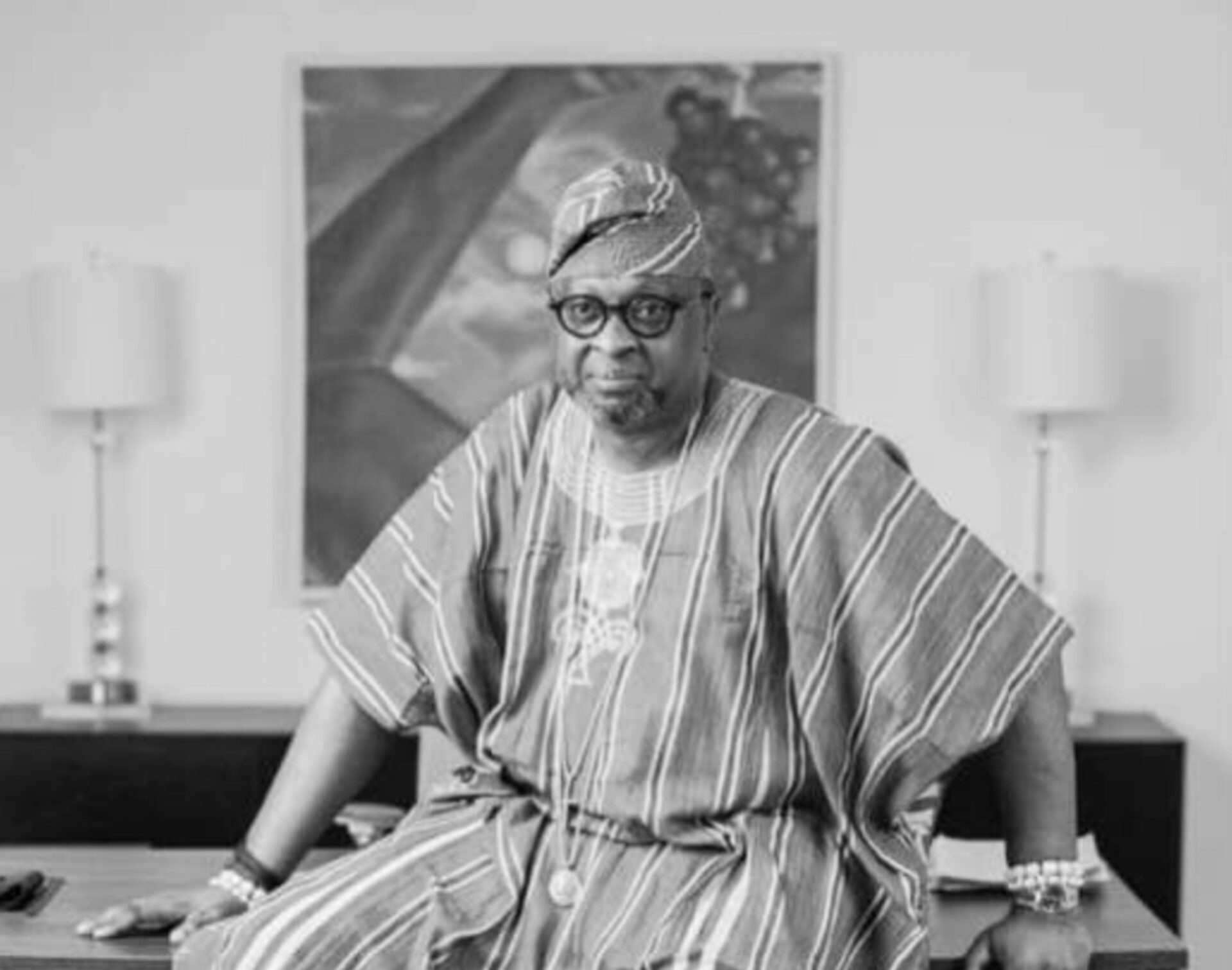By Ehichioya Ezomon
In an novel move that many Nigerians have hailed as in the right direction – even as they hold that it doesn’t go far enough – members of the House of Representatives have donated half of their salaries for the next six months – in the first instance – to complement Federal Government’s efforts at cushioning the economic hardship Nigerians undergo, especially since the Bola Tinubu administration in May 2023.
Viewed by sceptics as a fry in the pan – until a wholesale cut from the legislators’ homongous allowances that are in the realm of speculations and conjectures due to opaque disclosure even by fiscal responsibility advocates in the legislature – the lawmakers’ slash of salary by 50% for six months will amount to barely N3.240bn on the assumption that the 360 odd House members receive monthly basic of N1.5m, totally N540m.
Though Senators haven’t indicated they’d follow suit, calls have sometimes been cacophonious for members of the National Assembly (NASS) to shed their sundry allowances – reportedly graded from about N32m to over N50m – that they’ve enjoyed since the Fouth Republic commenced in May 1999.
They hardly settled down when the lawmakers of both chambers of the NASS embarked on a spending binge in official and private capacities, giving the impression that there’re surplus allocations to throw around in the midst of crushing poverty that’s earned Nigeria the unenviable record of the “Poverty Capital of the World.” Hence the NASS looks to draw as much of public anger as the executive arm of government, which, nonetheless, receives more resources than the legislature.
Nigeria’s journey to poverty is storied, with each succeeding government – whether civilian or military – pursuing policies and programmes that favour the ruling class and elite, without commensurate ameliorating measures that cater to the basic needs of the masses.
President Tinubu’s twin policy of removal of subsidy on petrol and floating of the Naira has exacerbated a bad situation of years of intermittent increase in prices of imported petroleum products – for a country that’s one of the largest producers, and with huge oil and gas reserves in the world – and inadequate and inefficient generation, transmission and distribution of power, with Nigeria becoming one of the world’s largest importers of generating sets as the main source of powering homes, offices and businesses.
The result of Tinubu’s declaration of “subsidy is gone” at his inauguration on May 29, 2023 – and subsequent floating of the Naira – had spontaneous effects on its value against other tradable currencies, a spike in inflation, and a steep rise in prices of goods and services, such as petrol, transportation, foodstuff, household consumables, pharmaceuticals, utility, rentage and tuition, resulting in low purchasing power, and less food on the table for tens of millions of citizens.
With Nigeria again earning an ignoble award for the “Highest Multi-Dimensional Poverty in the World,” the citizens’ woes have multiplied by manufacturers’ striving to maximise profit by adopting what, in economics, is known as shrinkflation, and skimpflation – a portmanteau of shrink and inflation, and skimp and inflation.
Adopting “shrinkflation” (reduced quantities) and “skimpflation” (lower quality ingredients) for household consumables – while the prices remain the same or slightly increase – is a decadesold practice since the downturn in Nigeria’s economy, and the push for value addition to locally-produced goods. The difference in the prevaling instance is the sharp increase in prices by over 100% since mid 2023, even as products continue to shrink and skimp almost biweekly or monthly.
In their bid to cut costs and maximise profit – or even exploit the situation and make abnormal profit, also called excess profit, supernormal profit or pure profit, “over and above what provides its owners with a normal return to capital” – producers have visited shrinkflation, also labels as “package downsizing, weight-out, and price pack architecture,” and skimpflation on packaged household consumables, such as beverages, noodles, flours, purees, table and ‘pure satchet water’, cooking oils and toiletries.
The hardship in the land – and the unbridled spending on luxurious items that make those in government “super comfortable” – have riled the masses, and turned their hunger into anger, and a call to action by mostly the youths, to protest what’s been perceptively consensually agreed as bad governance.
As the Tinubu administration appears to focus some of its policies to alleviating the problems, the youths – who argue that one year is enough for the government to consolidate such programmes – think the agents of their sufferings can best be addressed through mass protests, to hasten official actions.
The nationwide protests, which began on August 1 – and uncharacteristically predominate the North-West and North-East, and allegedly infiltrated by hoodlums and insurgents – have had telling consequences in death and destruction, prompting declaration of 12-hour to 24-hour curfews in several of the states, and heightened alert to deploy the military should the scenarios spiral out of control of the Police and other security agencies.
In the interim, former Abia State Governor Orji Uzor Kanu’s offering appeals, and recommendations for the way out of Nigeria’s economic logjam. Dr Kalu (APC, Abia North), Chairman of the Senate Committee on Privatisation, and former Chief Whip, is adding his voice to the clamour for a part-time legislature, to cut costs of governance.
As reported by Vanguard on July 21, 2024, Kalu, who expressed his views in an interview published on his verified Facebook page, thinks that the part-time legislative measure can significantly reduce government’s expenditure and enhance public trust in the political system.
“Not only the Senate and the House of Representatives, but all the legislative houses in Nigeria will be part-time,” Kalu says, adding, “I think it will be a very good idea if my colleagues and other members of the Houses of Assembly will agree that we can sit for three months and do constitutional amendment first.”
Kalu suggests that the legislative bodies can convene four times a year – with provisions for emergency sessions, as needed – arguing that it’ll allow for more efficient governance without the need for full-time legislative operations.
Kalu also advocates for regional governments, as a cost-saving alternative. “If we’re going for regional government, it also means that the ministers, the legislators, will be the same,” he says. “I’ve been tinkering with the idea of how we can save money to run Nigeria because the country needs money.”
Urging President Tinubu and the National Assembly to consider the legislative changes, with their potential to benefit the entire nation, Kalu touches on the “misconception” that senators receive excessive compensation, and stressed the need for a constitutional amendment, to facilitate part-time legislative sessions, as “that will bring trust and bring relief to the Nigerian people.”
Note that a part-time legislature – including the abolishment of the Senate – is No. 2 on the list of 15 demands (that’s kept changing) by the “unidentified organisers” of the August 1 to August 10, 2024, protests, captioned: “#EndBadGovernanceInNigeria
for the Days of Rage revolt
NON-NEGOTIABLE DEMANDS.” The ‘organisers’ urge: “(2) Toss the Senate arm of the Nigerian Legislative System, keep the House of Representatives (HOR), and make lawmaking a part-time endeavour.”
Here’s where the resistance to the change in the configuration of the legislature may come from: From the legislators themselves, who won’t want to lose their exalted positions, particularly in the Senate that’s literally become a “retirement place for and benefit” to former Governors.
Even a return to Regional Government may not be sweet music to the lawmakers because of the concomitant demand for accountability and transparency in parliaments, which the Nigerian legislators seem to loathe in their defence of fiscal and legislative autonomy for the National and State Houses of Assembly.
Yet, it’s imperative for Senator Kalu – in his stated commitment to “reducing governmental costs and fostering a more efficient and trustworthy political system in Nigeria” – and like-minded lawmakers to continue to advocate, and sustain the momentum for Nigeria to either adopt a part-time legislature under the subsisting presidential system of government.
Or return to a parliamentary democracy, as practised in the First Republic between October 1960 – following Nigeria’s independence from Britain – and January 1966, when the Military staged its first coup to upend, and suspend democracy in the country for decades – except for barely four years during the Second Republic, from October 1979 to December 1983.
Such a change will fit into the broader moves – some with constitutional underpinning – that’s silently and gradually emerging under the Tinubu administration, to restructure Nigeria in line with public clamours and recommendations of national conferences, and reports of committees empanelled over the years to so carry out!
Mr Ezomon, Journalist and Media Consultant, writes from Lagos, Nigeria





